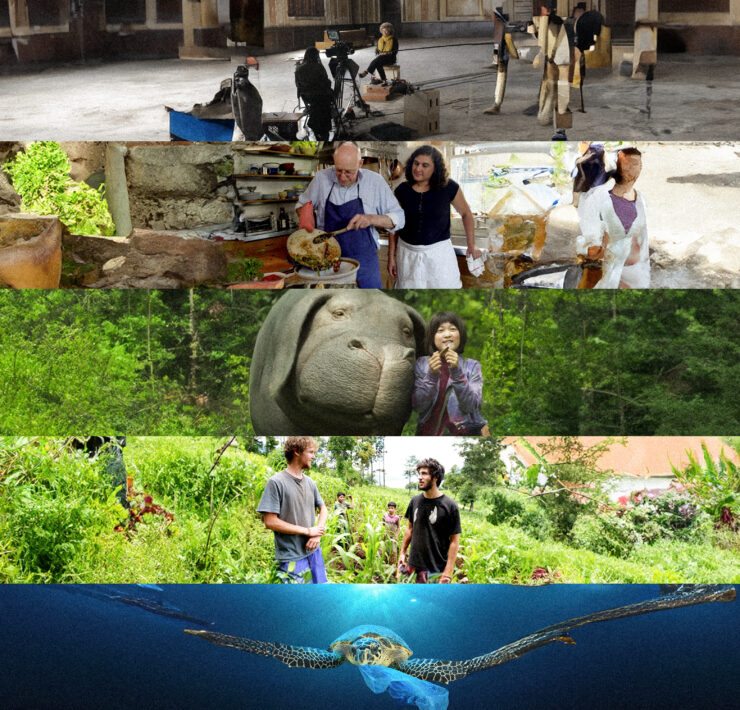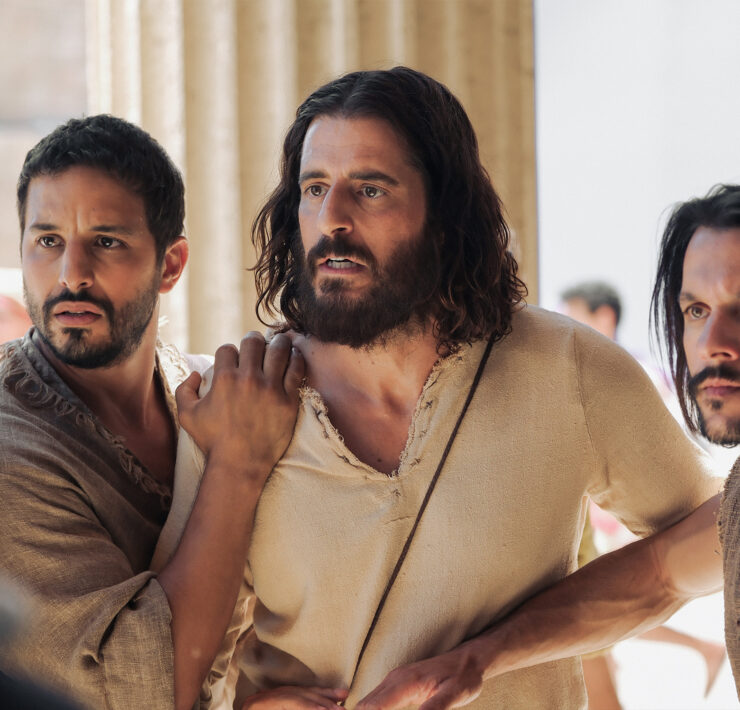The trouble started well before the broadcast, but the broadcast didn’t help.
When the Academy announced that it would be removing eight awards from the Oscars’ televised broadcast, the general response was bewilderment. Execs at ABC made the case that categories like Best Editing and Best Score simply didn’t appeal to the average person, so those awards would be handed out before the broadcast and aired in clips dispersed throughout the show.
But you know who does like watching awards for things like Best Editing and Best Score? People who watch the Oscars! Editing, sound, score, production design, hair and makeup …film lovers eat this stuff up. The Academy trying to cast a wider net by focusing less on the actual movies is like a political party trying to gain voters by focusing less on the policies they care about. It made no sense ahead of time, and the fact that Dune was making history inside Dolby Theater while viewers were subjected to inane red carpet banter was downright insulting. And it was a sign of what was to come.
At their best, the Oscars bring attention to the actual craft of making a great movie by shining a light on the artists and experts who achieve excellence at it. It can very easily dissolve into self-congratulatory navel-gazing, as we all know, but it’s also one of the few places where great art has a chance for wider exposure beyond YouTube ads and promoted tweets. Movies like Drive My Car, Flee and big winner CODA were all creative accomplishments, and more people know about them now because they were recognized for those accomplishments. At least, that’s the idea.
But this is where the Academy’s most altruistic aims and the realities of our hyper-consumerist, click-obsessed, capitalist dystopia find themselves at odds. The Oscars aired on ABC, which is owned by Disney, which — through its various ownings — was up for awards for Encanto, Luca, West Side Story, Raya and the Last Dragon and more. ABC could mysteriously not find time to air Denzel Washington presenting Samuel L. Jackson with a Lifetime Achievement Award, but did manage to air not one but two Encanto song performances, one of which was not even up for Best Song. Japanese director Ryusuke Hamaguchi’s acceptance speech got cut short, evidently so we could get a full pre-recorded commercial for the Academy Museum of Motion Pictures, featuring Wanda Sykes trying her best. Why an extended ad for a museum you will never visit masquerading as a bit, you might ask? Well, on the off chance you do go to the museum, that’s a couple bucks in the Academy’s pocket. What do they care if anyone decides to finally check out The Power of the Dog, let alone an international feature like The Worst Person in the World? What possible impetus does Disney have to spend any time showing its own movies losing to the competition?
The Academy fully deserved what it got with its patronizing Twitter polls for “fan favorite” and “cheer moment.” Though very clearly designed to give a little sub-Oscar, as a treat, to the MCU (owned by Disney), Zack Snyder’s online army of trolls mounted a successful online ballot-stuffing campaign to catapult the “climactic” (lol) scene from Justice League and the otherwise unnoticed Army of the Dead to Oscar glory. This is a sowing/reaping situation, in which the Oscars won stupid prizes for playing stupid games and anyone who walked away empty-handed should be grateful to be spared association with this institution.
Because for all the belabored entreaties about the magic of Hollywood and how much movies matter and we love the movies and blah, blah, blah, there was very little proof. Our trifecta of hosts Sykes, Amy Schumer and Regina Hall had some funny material, but a good deal of it centered around how much movies don’t matter, poking fun at how few of the nominated movies they’d seen and needlessly belittling the animation awards as kid’s stuff. Tony Hawk, Shaun White and Kelly Slater introduced a montage to the 60th anniversary of James Bond movies, though it remains unclear what any of them have to do with Bond or why we’re acknowledging 60th anniversaries now. Jessica Chastain devoted part of her acceptance speech to praising the technical aspects of filmmaking. Doesn’t ring a bell? That’s because it was cut.
I am deliberately sidestepping the night’s major talking point, since it’s not really the subject of this piece and others are better equipped to unpack what went down between Chris Rock and Will Smith. But let’s focus on a barely noted casualty of that exchange. A stunned, clearly shook Rock presented an award for Best Documentary to Questlove for his excellent Summer of Soul, about the 1969 Harlem Cultural Festival. Questlove was deeply moved, thanking his parents and speaking on the triumph of marginalized communities despite institutional oppression. It’s the sort of human moment that can occasionally elevate the Oscars from celebrity backscratching to something powerful.
This was a beautiful speech but it is not necessarily great TV, and as long as the Oscars are content to judge themselves by the standards of Keeping Up With the Kardashians and March Madness, they will continue to let these moments slide by. Both Schumer and Hall were given time for long, not particularly funny bits about flirting with some of the a-list hunks in attendance, which might have been forgivable if it hadn’t come at the expense of Riz Ahmed’s lovely speech for his live-action short The Long Goodbye. At the very least, ABC had the good sense not to play Troy Katsur off during his wonderful Best Supporting Actor acceptance speech for CODA, presented by the excellent Youn Yuh-jung.
That’s the sort of thing the Oscars need more of and are fully capable of delivering. But since Kotsur has no upcoming projects to hawk and we need to get to the Lightyear trailer, there was just no time to linger. Nor was there time to focus on Jane Campion’s Best Director win (the first time in Oscar history women have won Best Director in consecutive years) or CODA‘s astonishing rise and representation for the deaf community. Instead, the show sped along to more “how do you, fellow kids?” moments like BTS talking about how much they love Disney and, uh, a Godfather tribute. It is by no means clear that any of this led to a boost in the show’s flagging viewership numbers but it did fail at the one stated goal of shortening the runtime. This year’s show ran even longer than last year’s.
But all this speaks to America’s larger problem. We have an entertainment culture that consistently delivers fun, creative, profound pieces of art at every level, from Academy-level middlebrow to frequently fun superhero adventures to lovingly crafted animated features and beyond. But that culture has been so subsumed by consumerism that it’s difficult to know where the actual storytelling ends and the corporate shilling begins. Much of our best cultural output is stuck in a parasitic relationship with media conglomerates that can’t see these stories as anything more than another zero on the paycheck. So everything from the movies to the awards shows celebrating them get mixed into the same money-making enterprise even as the hosts of these things desperately try to convince us that the movies matter. And they do! But right now, it’s not clear the Oscars understand why.
























